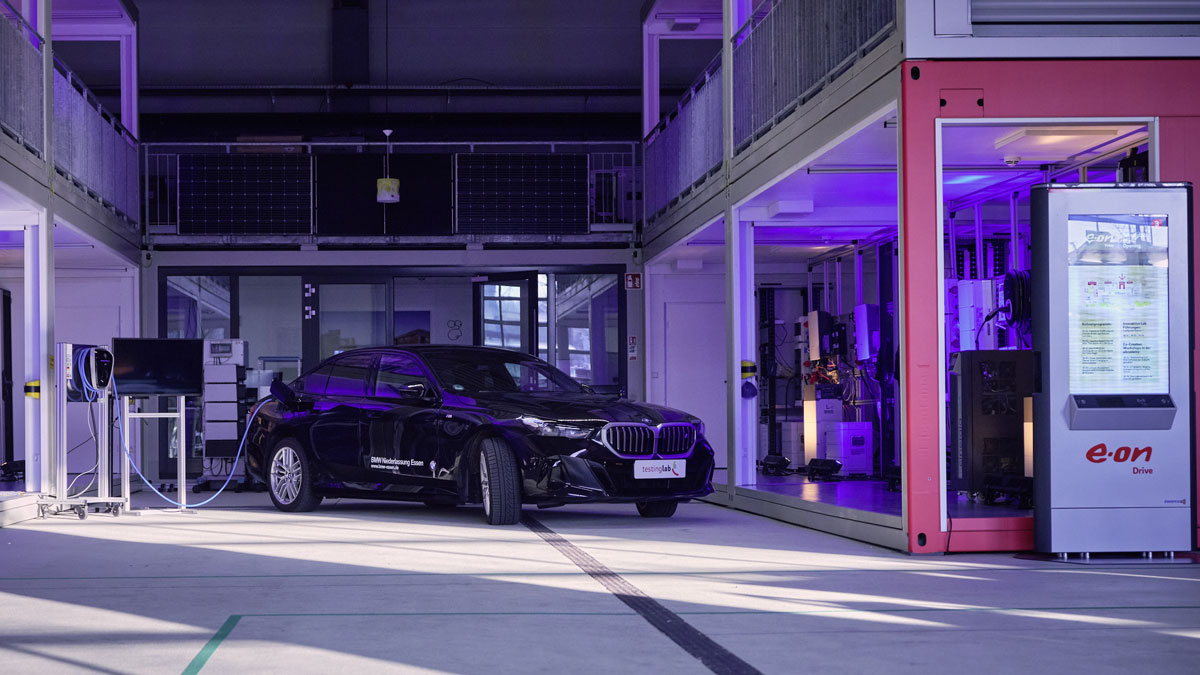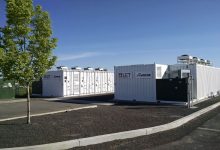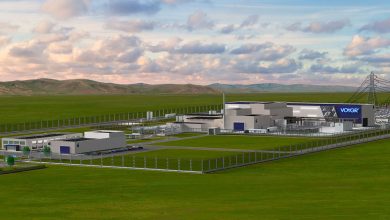Largest Manufacturer-independent Test and Innovation Center for Electromobility
- State-of-the-art test laboratory with more than 25 test stations and five climate chambers covering around 10,000 square meters
- Unique in Europe: testing of charging solutions for truck fleets with up to 3 megawatts of power
- Increased capacity to test and configure charging stations accelerates the planned expansion of charging infrastructure
The expansion of public and private charging infrastructure continues to gather pace across Germany and Europe. This is why E.ON is investing heavily in its electromobility solutions business. In this context, the company opened a new, state-of-the-art test and innovation center for charging technologies and sustainable energy solutions.
At the new site in Essen, E.ON is testing and researching charging solutions for electric vehicles and their intelligent integration into the energy ecosystem. On an area of around 10,000 square meters, more than 25 stations and digital test environments are available for testing vehicles, charging stations, wallboxes and accessories. The test lab also has five special climate chambers. These allow E.ON engineers to simulate all temperature conditions that occur around the world, from freezing cold to extreme heat. For example, the charging behaviour of electric cars can be tested at temperatures between minus 40 and plus 50 degrees Celsius. This means that customers such as car manufacturers do not have to carry out time-consuming and costly tests in real environments. In addition to research and development, E.ON also uses the test center to train its customers and partners in installation and maintenance.
“In order to effectively implement and achieve the goals of energy and transport transformation, we need the active participation of the entire city society,” said Thomas Kufen, Lord Mayor of the City of Essen. “A successful and long-term process can only be achieved through innovative projects and the networking of the various players in our city. I am therefore very pleased to be able to open the E.ON TestingLab. The continuous further development of electric mobility is a key element of the energy transition and another important step towards more climate protection and less dependence on fossil fuels. E.ON is taking this step. As mayor, I am very grateful for this initiative.”
“Energy transition, clean transport, climate protection – all this will only succeed if electromobility gains even more momentum. We will build at least 1,000 additional public charging stations across Europe every year, further accelerating the transformation of traffic and transport. With our new test and innovation center, we are creating the necessary capacity to meet the growing demand for charging infrastructure. As a result, we are ideally positioned for the dynamic market development of electric mobility. I am very proud of our team who have created a unique and practical test environment that is also available to our partners. This brings us a big step closer to electromobility for everyone,” E.ON Board Member Patrick Lammers said.
Unique test environment in Europe for charging electric trucks
A special focus of the test lab is the electrification of heavy-duty vehicles. Together with vehicle manufacturers, E.ON is testing and developing charging technologies designed to meet the special requirements of electric trucks and buses. The test lab is the only facility in Europe where fast charging in heavy-duty vehicles can be tested with up to three megawatts of power. “Fast charging for trucks is crucial for electrifying road freight transport and making it climate-neutral. There is still a lot to do before we get there. Over the next few years, we will see a lot of technological innovation in this area. We can easily test new high-capacity truck charging stations with up to three megawatts of power on site and are therefore well prepared for future developments with ever higher charging capacities,” noted Davide Villa, CEO of E.ON Drive.
Making electromobility user-friendly and accessible to the masses
Global sales of electric cars hit a new record last year. The International Energy Agency predicts that the number of electric cars could increase tenfold by 2030. Car manufacturers and providers of charging infrastructure are working flat out to develop new products and bring them to market. With the increasing number and variety of vehicle models and charging solutions, interoperability between different systems is becoming an ever-greater challenge. The industry also has to cope with the increasing complexity of charging solutions, ranging from fast charging for electric cars and trucks to bi-directional charging, e.g. for vehicle-to-home applications.
“In our test lab, we focus on understanding and improving the entire electromobility ecosystem. This is where we try out, test, and optimize for everyday use by businesses and private customers. The aim is to make electromobility possible on a broad scale and make it suitable for practical use. User-friendliness depends on the smooth interaction of various intelligent technologies. That’s why another focus of our new site is to optimize the interoperability and reliability of the charging infrastructure,” adds Davide Villa.
E.ON continues to invest in electric mobility
E.ON is pursuing a Europe-wide growth strategy with its electromobility business and continues to focus on expanding its fast-charging infrastructure. The company plans to build at least 1,000 new ultra-fast charging stations per year in its European markets. In Germany, E.ON will build around 140 new charging locations with more than 1,200 charging points for the federally subsidized German network (‘Deutschlandnetz’), making it one of the largest operators of the nationwide fast-charging network. This is in addition to the charging infrastructure E.ON is building for its customers across Europe. In 2022 alone, E.ON sold more than 20,000 charging points to private and business customers in Europe.







